Investor, consumer, and regulatory pressure has made ESG performance reporting just as essential as traditional financial statements for companies worldwide. In Mexico, the introduction of the Sustainability Reporting Standards (NIS) represents a major step forward, ushering in a new era of accountability and transparency. Issued by the Mexican Council for Financial and Sustainability Reporting Standards (CINIF), these new standards mark a crucial advancement in non-financial reporting. In this article, we’ll explore what the NIS entails, why they matter to Mexican businesses, and how they can be successfully implemented.
What are the Sustainability Reporting Standards?
The NIS are a set of guidelines designed to standardise the way companies report their sustainability performance. Their primary objective is to provide a structured, high-quality framework that enables stakeholders, including investors, customers, suppliers, and employees, to clearly and comparably assess an entity’s environmental, social, and governance (ESG) position.
Structure of the NIS
CINIF has initiated the first phase of this strategy with the issuance of two fundamental standards:
NIS A-1: Conceptual Framework for Sustainability Reporting Standards. This standard establishes the principles, concepts, and general quality requirements that all sustainability disclosures must adhere to. It functions similarly to a financial conceptual framework but is adapted to non-financial reporting. Among other aspects, it defines:
- The concept of sustainability as “the ability of current generations to meet their needs without compromising the ability of future generations.”
- The qualitative characteristics that reported information must possess, such as relevance, comparability, verifiability, and understandability.
- The need to integrate these criteria with Financial Reporting Standards (NIF) to achieve a holistic view of corporate management.
NIS B-1: Basic Sustainability Indicators (IBSO). This standard focuses on 30 key indicators that will universally measure a company’s sustainability performance. These indicators are grouped into three main areas:
- Environmental: Includes metrics such as greenhouse gas (GHG) emissions across different scopes, total and renewable energy consumption, sustainable investments, water usage and management, waste management, among others.
- Social: Covers indicators related to human capital, such as pay gap, equal opportunities, workplace health and safety, training hours, and performance evaluations.
- Governance: Focuses on aspects such as the existence and composition of the board of directors, independent oversight bodies, risk policy implementation, sustainability strategy, and the presence of an ethics and integrity code.
When do the new standards apply?
Both standards will come into effect for financial years beginning on or after 1 January 2025, although early adoption is permitted. Their scope includes entities that prepare financial statements under the NIF Conceptual Framework. Regulated entities must also comply with additional sustainability reporting requirements set by their respective regulators.
- Comparative presentation: Information must be included in financial statements on a comparative basis. However, during the first reporting period (ending 31 December 2025), only the most recent period’s data will be required.
- Disclosure relief: Practical solutions allow for the omission of certain indicators in the first year. Specifically, two reliefs are provided: one for Scope 3 GHG emissions and another for the sustainable investment indicator, allowing these to be included in reports by the end of 2026, provided that this option is explicitly disclosed.
Challenges and opportunities of the NIS
As we’ve mentioned, pressure from investors, consumers, and society at large has led more organisations to integrate environmental and social criteria into their business models. Mexico, with its rich biodiversity and growing economy, is no exception. The adoption of the NIS addresses the need for a common language that enables companies to compare their performance clearly and objectively.
Transitioning to this new reporting framework will require significant changes in how organisations gather and process information. Many companies will need to invest in upgrading internal systems and training employees to ensure data is accurate, consistent, and verifiable. While this presents a technological and organisational challenge, it also offers a valuable opportunity: a chance to rethink processes, boost efficiency, and enhance corporate reputation.
The benefits of adopting the NIS go beyond
regulatory compliance. By offering clear and transparent sustainability reporting, companies can build trust with stakeholders and strengthen their market position. Standardised reporting makes it easier to access new sources of finance, particularly from investors prioritising ESG factors. Furthermore, embedding sustainability into business strategy can unlock innovations that improve resource efficiency, cut costs, and mitigate operational and reputational risks.
A commitment beyond regulation
Sustainability integration is an ongoing journey, and implementing the NIS is a significant milestone in this transformation. Companies that embrace transparency and continuous improvement will not only be better equipped to navigate market challenges but also contribute to a fairer and more responsible business environment.
The convergence of sustainability regulations, digital transformation, and growing investor and consumer interest in ESG issues will continue shaping the corporate landscape in the years ahead. In this context, adaptability and forward-thinking will be key competitive advantages. ESG technology solutions play a crucial role in this shift, helping businesses manage sustainability data efficiently while staying aligned with their core mission and values.
The role of ESG tools in the digital transformation of mexican businesses
Digitalisation has become the bridge between sustainability demands and operational efficiency. In this landscape, ESG tools are proving to be essential for companies looking to streamline their reporting and management processes. These solutions allow businesses to centralise data from multiple sources, integrating financial and non-financial information within a single system. Automating data collection, analysis, and reporting in required formats simplifies compliance and reduces reliance on manual processes, which are often error-prone.
Several platforms have already proven effective in managing sustainability data. One such example is Sygris Reporting, a tool that not only consolidates information but also provides interactive dashboards and real-time reports, enabling businesses to continuously monitor performance and make data-driven decisions.
Embracing ESG technology translates into greater efficiency, cost savings, and a stronger ability to meet growing global expectations for transparency and sustainability.




